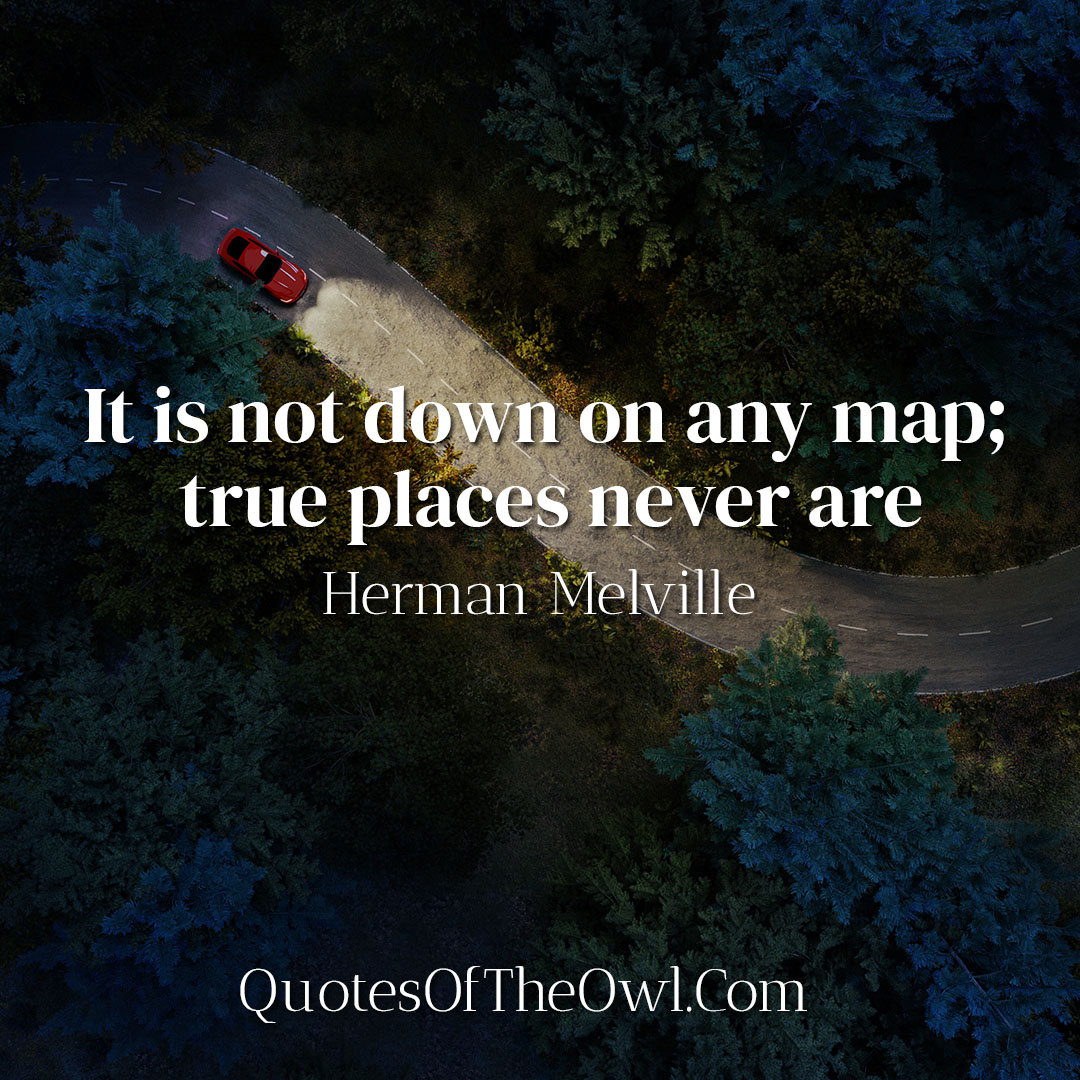What is the meaning behind Herman Melville’s Quote: “It is not down on any map; true places never are”?
Herman Melville wrote this famous line in his novel “Moby Dick.” The phrase reflects the idea that some of the most profound and meaningful places in life cannot simply be located on a map. These “true places” might be more metaphorical or spiritual in nature, representing experiences or moments that hold significance beyond mere geographical coordinates. In the context of the novel, it speaks to the elusive nature of certain aspects of life and the human experience that transcend physical boundaries.
Understanding the Literal Meaning
At first glance, the quote seems to address cartography and the limitations of maps in capturing the essence of a place. While maps can provide geographical coordinates and physical attributes, they often fail to capture the true spirit and significance of a location. Melville suggests that there are aspects of places that elude simple cartographic representation, and these intangible elements define a place’s true nature.
The Deeper Philosophical Meaning
Beyond the literal interpretation, Melville’s quote takes on a philosophical dimension. It implies that true places might not be tangible locations at all but rather metaphorical, emotional, or spiritual experiences. These “true places” may exist within the realms of memory, imagination, or the human heart. They hold meaning beyond their physical coordinates, resonating deeply with individuals who encounter them.
The Quest for True Places
Melville’s quote can be seen as an invitation to explore and discover “true places” in our lives. These might be uncharted territories, both externally and internally, that challenge us to venture beyond our comfort zones. The pursuit of true places involves embracing change and uncertainty, fostering personal growth, and embarking on a journey of self-discovery.
Metaphorical Interpretations
The beauty of Melville’s quote lies in its open-ended nature, allowing for various metaphorical interpretations. True places could symbolize personal aspirations, meaningful relationships, or life-defining moments. As individuals, we assign significance to certain experiences, making them our “true places.”
The Influence of Melville’s Personal Life
To understand the quote better, it is essential to consider Melville’s life and experiences. The author’s literary journey, which included voyages at sea, encounters with different cultures, and personal struggles, undoubtedly influenced his perspective on places and human connections.
Literary Analysis of the Quote
Examining the quote within the context of Melville’s works reveals recurring themes of exploration, identity, and the search for truth. The quote exemplifies Melville’s unique writing style, characterized by profound philosophical musings.
The Quote’s Relevance in Modern Society
Despite the quote’s origin in the 19th century, its relevance endures today. In a rapidly changing world where technology connects us across borders, the quest for “true places” takes on new dimensions. The quote reminds us to seek authentic experiences and genuine connections amidst the noise of modern life.
Perceptions of Place and Identity
Melville’s quote prompts us to ponder the relationship between place and identity. The places we inhabit influence our sense of self, shaping our values, beliefs, and perspectives. At the same time, our identities influence how we perceive and interact with the places around us.
Cultural and Geographical Perspective
The quote’s interpretation may vary across cultures and geographical locations. Different societies and landscapes offer unique understandings of “true places.” Acknowledging this diversity enriches our comprehension of the quote’s universality.
The Power of Imagination
Imagination plays a pivotal role in recognizing “true places” that elude conventional mapping. Literature, art, and creative expression help us glimpse places beyond physical boundaries, fostering a deeper appreciation for the wonders of the world.
Applying the Quote in Daily Life
Embracing the wisdom of Melville’s quote, we can enrich our lives. By seeking experiences that resonate with our true selves, we find fulfillment and purpose. Exploring new horizons, both literal and metaphorical, enables personal growth and a profound connection to the world around us.
Conclusion
Herman Melville’s quote, “It is not down on any map; true places never are,” transcends time and space with its profound insights into the human experience. Encouraging us to explore beyond the surface, it beckons us to seek “true places” that hold significance and meaning in our lives. As we navigate the complexities of existence, let us remember that some journeys lead us not to specific coordinates but to the depths of our souls.
Explore the timeless wisdom of Herman Melville – Dive into his captivating quotes now!

